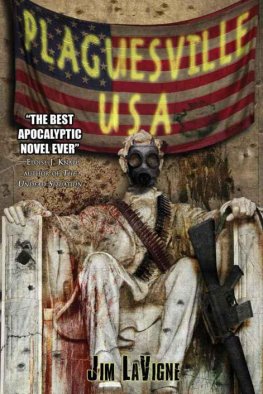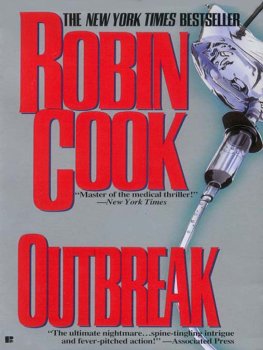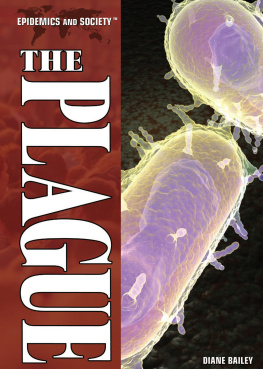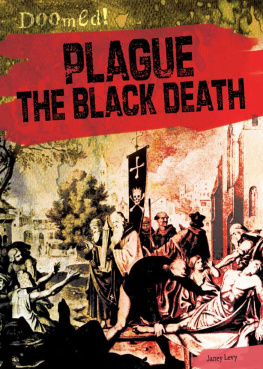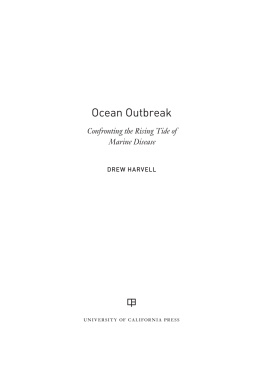Jim LaVigne - Plaguesville, USA
Here you can read online Jim LaVigne - Plaguesville, USA full text of the book (entire story) in english for free. Download pdf and epub, get meaning, cover and reviews about this ebook. year: 2012, publisher: Permuted Press, genre: Science fiction. Description of the work, (preface) as well as reviews are available. Best literature library LitArk.com created for fans of good reading and offers a wide selection of genres:
Romance novel
Science fiction
Adventure
Detective
Science
History
Home and family
Prose
Art
Politics
Computer
Non-fiction
Religion
Business
Children
Humor
Choose a favorite category and find really read worthwhile books. Enjoy immersion in the world of imagination, feel the emotions of the characters or learn something new for yourself, make an fascinating discovery.
- Book:Plaguesville, USA
- Author:
- Publisher:Permuted Press
- Genre:
- Year:2012
- Rating:5 / 5
- Favourites:Add to favourites
- Your mark:
- 100
- 1
- 2
- 3
- 4
- 5
Plaguesville, USA: summary, description and annotation
We offer to read an annotation, description, summary or preface (depends on what the author of the book "Plaguesville, USA" wrote himself). If you haven't found the necessary information about the book — write in the comments, we will try to find it.
Plaguesville, USA — read online for free the complete book (whole text) full work
Below is the text of the book, divided by pages. System saving the place of the last page read, allows you to conveniently read the book "Plaguesville, USA" online for free, without having to search again every time where you left off. Put a bookmark, and you can go to the page where you finished reading at any time.
Font size:
Interval:
Bookmark:
Jim LaVigne
PLAGUESVILLE, USA
Acknowledgements
Dedicated to:
Kevin, for the spirit
Jane, for the undying support
Ellie, for the spark
And most of all, to Katy, without whom this would not be possible, for Everything Else
Prologue:
From Baron Zeros New History of America
Q. How many survivors does it take to screw in a light bulb?
A. Doesnt matter; theres no electricity and no more bulbs.
popular joke, circa 2075Most survivors would later mark August 3rd, 2064 as the final day of the United States of America. On that date, Harold Thomas Ortega, our 53rd President, gave the last address to issue from the White House. Anyone left who was lucky enough to still have electricity, a functioning TV, and the luxury of anything like safety, heard the following brief, poignant message. It would later be generally be referred to as the We Endure speech and, while hailed as brave by some, was mostly the object of derision and bitterness among the typically cynical, hard-hearted survivors.
My fellow Americans. I come to you today with a heavy heart and a spirit much subdued by the monumental challenges we face, but also to offer hope. As you all know, we face the greatest crisis ever known to man. The global spread of the New Plague has devastated not only this great nation of ours but indeed, the entire human population. Sadly, our best estimate is that at least 8 of every 10 human beings on the planet has succumbed to the disease. Now, I know that this is a shocking statistic and that loss of life on this scale is difficult to comprehend. Never before in the annals of human existence has such a disaster claimed the lives of so many, and the difficulties faced by those of us who are left are myriad and frankly grave. Truly, we face trying times.
But I speak to you today to let you know that the government of the United States of America endures. Yes, we are forced to function at a greatly reduced level, and with far less effectiveness than in earlier times, but nonetheless, we endure. Through pain and strife, we endure. Through disease and chaos, we endure. And through this crisis, my fellow citizens, we shall also endure. Your government has not forgotten you. We are still here, we are still striving to persevere, and we will never cease to do our duty as long as we draw breath. We will endure.
And so, my friends, in the coming days, let us remember the great strength and amazing adaptability of our great nation and work, each of us, to maintain this great land, this great nation for which so many have struggled and fought. Let us reach out to our fellow man, to help those who cannot help themselves, and to insure that this mighty nation endures. With your help, we will ride out this grave situation and emerge an even stronger, greater country. We will endure. Thank you, good night, and God Bless the United States of America.
Even at the time, clinging to any scrap of hope, most survivors who saw or heard the final address knew that it was a complete load of bullshit. For one thing, the man delivering the speech had been sealed in a special, germ-free, state-of-the-art hazmat suit for the last two years; what did he know about disease or suffering? What was all this we talk?
Mainly though, all a survivor had to do was to look around to see that the man was full of crap, because no matter where they were, from Alaska to Florida, Maine to California, they were surrounded by death. Like a great, mindless colossus, the plague had stomped across the country, killing everyone it could and (metaphorically) shaking the infrastructure of society so violently that things simply fell apart. With hundreds of thousands of bodies in the streets, no one was left to endure. No one was left to run the power plants or to man police forces, nor monitor and man the infrastructure. There was no sewer, water, electricity, or phone service, and each person was more concerned with the simple demands of feeding themselves than anything else. Needless to say, they didnt feel much like the citizens of a great nation.
Not that it had been altogether sudden; anyone who survived had seen the same sad, dreary descent into collapse. In the fall of 2058, there had been reports of an outbreak of some plague-like disease in India, in which a few thousand people had perished. Inured to such outbreaks in the Third World, no one had taken much notice until the disease had spread, first to China, then Africa, and people had started dying in alarming numbers. Within a week, mortality statistics began to overwhelm every agency tasked with compiling them and the news networks were afire with grisly scenes of hospitals and UN clinics overwhelmed with victims.
Still, few in the West were overly concerned; they had all kinds of plans in place to deal with just this sort of thing. The U.S. CDC, the UN World Health Organization, all of the hundreds of national governments and health watchdogs, all assured people that they had it under control, that there was no need for panic. They had a plan and it would take care of everything.
But it didnt. The disease, a new, air-born variant on the venerable Yersinia pestis, more commonly known as pneumonic plague, defied all efforts to confineor even slowits spread. The small stock of vaccine on hand was both insufficient and ineffective, and production of new vaccine painfully slow and haphazardly distributed. Before the experts knew what was happening, and despite every contingency plan and worst-case scenario fallback scheme, the plague colossus stomped right over them.
Emergency plans and severe restrictions on travel proved ineffective and modern transportation meant that the disease spread quickly to Europe and the Western Hemisphere. Soon enough, within a year of its outbreak, it had reached U.S. soil and people began to die. From either coast and from the squalid reaches of the Mexican Narco-Union, it spread like a wildfire in a high wind. It is estimated that, by 2063, it had spread to every corner of the continent.
In the news and on TV, all the average U.S. citizen saw for the next two years was one piece of crushingly bad news after another. Oh, the Powers That Be, such as did not die and stayed at their posts, kept right on saying that they were doing everything they could, that a vaccine was in the works and not to panic or take the law into their own hands, to stay in their homes and remain calm, but when the lights went out and the plumbing stopped working, when their neighbor died and lay unburied on his lawn until dogs ate him, when a roving gang came down the street, kicking in doors and ransacking homes for food, they knew that the end couldnt be far off. And when the TV went into 24-7 Emergency Broadcast Channel mode, even if they still had power they generally just quit watching.
In most of the country, anarchy came gradually but inexorably. First the local police and fire services had failed as the men and women who comprised them either died or simply took off their uniforms and fled. Similarly, the various state National Guard forces faded and then disappeared as their numbers plummeted and the less dedicated of them simply gave up and went their own way. Armed citizens and vigilantes held sway in some places, defending what was left of their properties and possessions, but the plague, like an inexorable wave, swept through their numbers as quickly as anyone else and, by about 2065, those survivors not in some sort of enclave were faced with the ultimate expression of Every Man for Himself.
Agencies like FEMA and the Red Cross were overwhelmed within the first year and ceased to be a factor before ever really getting started. Health services nationwide, hospitals and clinics and all of the emergency facilities set up in the first year were overwhelmed within months and there were many reports of armed guards, awash in desperate, angry victims, resorting to lethal (and, to some, highly ironic) force to defend the houses of healing.
Font size:
Interval:
Bookmark:
Similar books «Plaguesville, USA»
Look at similar books to Plaguesville, USA. We have selected literature similar in name and meaning in the hope of providing readers with more options to find new, interesting, not yet read works.
Discussion, reviews of the book Plaguesville, USA and just readers' own opinions. Leave your comments, write what you think about the work, its meaning or the main characters. Specify what exactly you liked and what you didn't like, and why you think so.

